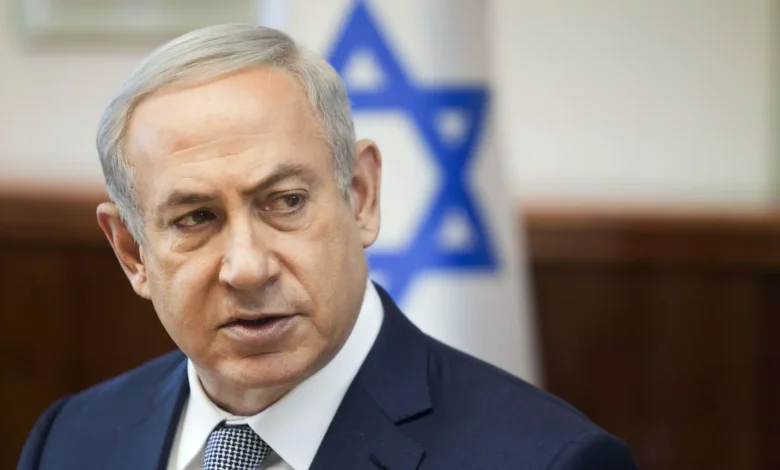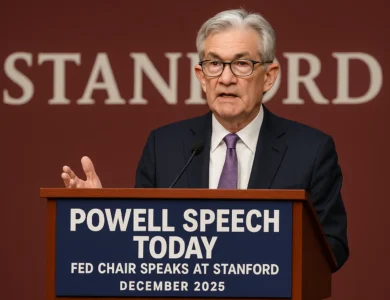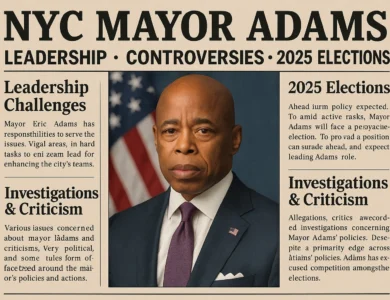
Benjamin Netanyahu, Israel’s most prominent political figure and longest-serving Prime Minister, continues to dominate headlines in 2025 as he navigates unprecedented challenges both domestically and internationally. Born in Tel Aviv in 1949, Netanyahu has shaped Israeli politics for over three decades, serving multiple terms as Prime Minister and becoming synonymous with the country’s security policies and diplomatic strategies.
Currently facing corruption charges in three separate cases involving fraud, breach of trust, and accepting bribes, Netanyahu remains at the helm of Israeli government while simultaneously defending himself in court. His political career, marked by both significant achievements and controversies, reflects the complex nature of Middle Eastern politics and Israel’s evolving role on the global stage.
The Israeli Prime Minister has built his reputation on strong security policies, economic reforms, and diplomatic initiatives that have fundamentally altered Israel’s position in the region. From his early days as a special forces officer in the Israel Defense Forces to his current role as head of government, Netanyahu’s journey embodies the transformation of modern Israel. His leadership during multiple conflicts, negotiations with world powers, and efforts to normalize relations with Arab nations have made him one of the most recognizable figures in international politics.
As we examine Netanyahu’s current political standing in 2025, it becomes clear that his influence extends far beyond Israel’s borders. His relationships with global leaders, particularly with the United States, have shaped Middle Eastern geopolitics for decades. The ongoing Gaza conflict and recent security challenges continue to test his leadership while his legal battles add another layer of complexity to his political legacy.
Early Life and Military Service
Benjamin Netanyahu’s formative years played a crucial role in shaping his worldview and political philosophy. Born in Tel Aviv on October 21, 1949, he grew up in Jerusalem before moving with his family to Pennsylvania during his high school years, where his father taught history. This early exposure to both Israeli and American cultures would later influence his diplomatic approach and his unique ability to communicate with Western audiences.
The future Prime Minister returned to Israel in 1967, a pivotal year marked by the Six-Day War, and immediately enlisted in the Israel Defense Forces. Netanyahu joined the IDF’s Sayeret Matkal special forces unit, where he served until 1973, participating in some of the most dangerous and high-profile military operations of that era.
His military service included many military operations, including a 1972 rescue mission of hostages in a hijacked Sabena airplane, during which he was shot in the shoulder. This experience not only demonstrated his personal courage but also provided him with firsthand understanding of the security challenges facing Israel, knowledge that would prove invaluable throughout his political career.
The military background of Netanyahu significantly influenced his approach to national security policy. His service in elite units exposed him to the complexities of counter-terrorism operations and intelligence gathering, experiences that shaped his hardline stance on security matters and his skepticism toward peace negotiations that he perceived as potentially compromising Israel’s security.
Political Rise and Leadership Philosophy
Netanyahu’s entry into politics was marked by his exceptional communication skills and his ability to articulate Israel’s position to international audiences. His American education and fluency in English made him an ideal spokesperson for Israel during the 1980s, when he served as Israel’s ambassador to the United Nations.
The Likud Party leader’s political philosophy centers on three core principles: maintaining Israel’s military superiority, ensuring economic prosperity through free-market policies, and preserving Jewish identity in the Israeli state. These principles have guided his decision-making throughout his various terms as Prime Minister and have remained consistent despite changing regional and international circumstances.
Netanyahu’s approach to leadership is characterized by pragmatic realism combined with ideological conviction. He has demonstrated remarkable political survival skills, managing to maintain power through multiple elections and coalition governments despite facing numerous challenges. His ability to adapt to changing political circumstances while maintaining his core positions has been both praised by supporters and criticized by opponents.
The Israeli leader has consistently emphasized the importance of strength in negotiations, arguing that Israel must negotiate from a position of military and economic superiority. This philosophy has shaped his approach to peace processes, his stance on Iran’s nuclear program, and his strategies for dealing with Palestinian issues.
Current Legal Challenges and Corruption Trial
The most significant challenge facing Benjamin Netanyahu in 2025 is his ongoing corruption trial, which represents an unprecedented situation in Israeli politics. Netanyahu is standing trial for charges of bribery, fraud and breach of trust in three separate cases, marking the first time a serving Israeli Prime Minister has faced criminal charges while in office.
The three cases, labeled 1000, 2000 and 4000, involve different aspects of alleged corruption. Case 1000 involves allegations that Netanyahu and his wife Sara received lavish gifts from two wealthy businessmen in exchange for political favours, including champagne and other luxury items from Hollywood producer Arnon Milchan and Australian billionaire James Packer.
Netanyahu’s cross examination began on June 3, 2025, marking a crucial phase in the legal proceedings. The trial has created significant political tension, with the Israeli cabinet voting unanimously to fire the attorney general leading the prosecution, though this decision was subsequently halted by the courts.
The corruption trial has added complexity to Netanyahu’s political calculations, as many believe he is prolonging the war to stay in power. The intersection of legal proceedings with national security decisions has raised questions about the separation of powers and the rule of law in Israeli democracy.
The international community has also taken notice of the trial, with United States President Donald Trump saying Netanyahu’s trial should be cancelled, stating that “Bibi Netanyahu’s trial should be CANCELLED, IMMEDIATELY, or a Pardon given to a Great Hero”.
Gaza Conflict and Security Policies
Netanyahu’s handling of the Gaza conflict in 2025 continues to define his leadership and influence public perception of his government. Netanyahu warned of an “intensified ground maneuver” and ordered residents of Gaza’s largest city to leave just hours after two gunmen opened fire at a Jerusalem bus stop, killing six people.
The Israeli Prime Minister’s security strategy in Gaza reflects his long-standing belief in the use of military force to achieve political objectives. Israel’s security cabinet approved Netanyahu’s plan to occupy Gaza City, as the Prime Minister pushes for military takeover of the entire strip, indicating a significant escalation in military operations.
Netanyahu has threatened Palestinians in Gaza City to “leave now”, as part of broader military operations that have drawn international criticism. The United Nations and other international bodies have condemned what they describe as disproportionate use of force, creating diplomatic challenges for Netanyahu’s government.
The Gaza conflict has also impacted Netanyahu’s domestic political standing, as he faces deep criticism of a war many believe he is only prolonging to stay in power. This criticism highlights the complex relationship between his legal troubles and his military decisions, raising questions about the motivations behind his security policies.
The ongoing conflict has tested Netanyahu’s coalition government, with some partners expressing concern about the humanitarian consequences and international isolation that may result from prolonged military operations.
International Relations and Diplomatic Strategy
Throughout his tenure, Benjamin Netanyahu has prioritized strengthening Israel’s international relationships, particularly with major world powers. His diplomatic strategy emphasizes building personal relationships with foreign leaders while maintaining Israel’s strategic independence in decision-making.
Netanyahu’s relationship with the United States remains central to his foreign policy approach. His ability to maintain strong ties with different American administrations, regardless of their political orientation, demonstrates his diplomatic skills and understanding of American politics. The support he has received from President Trump regarding his legal troubles exemplifies the personal relationships he has cultivated over decades.
The Israeli leader has also worked to expand Israel’s diplomatic horizons through the Abraham Accords and other normalization agreements with Arab nations. These achievements represent a significant shift in Middle Eastern geopolitics and are considered among Netanyahu’s most important diplomatic accomplishments.
His approach to Iran continues to be a defining aspect of his foreign policy. Netanyahu has consistently advocated for a tough stance against Iran’s nuclear program and regional influence, sometimes putting him at odds with international partners who prefer diplomatic solutions.
The Prime Minister has also navigated complex relationships with European nations, balancing Israel’s need for international support with his commitment to policies that sometimes conflict with European preferences, particularly regarding Palestinian issues.
Economic Policies and Domestic Achievements
Netanyahu’s economic policies have significantly transformed Israel’s economy over the past two decades. His market-oriented reforms and emphasis on technology and innovation have helped establish Israel as a global technology hub, earning it the nickname “Startup Nation.”
The Israeli Prime Minister has implemented policies that encouraged foreign investment, reduced government regulation, and promoted entrepreneurship. These policies have contributed to sustained economic growth and increased Israeli living standards, despite ongoing security challenges.
Netanyahu’s focus on developing Israel’s high-tech sector has been particularly successful. His government’s support for research and development, combined with policies that attract international technology companies, has made Israel a major player in global technology markets.
The economic transformation under Netanyahu’s leadership has also included significant infrastructure investments and efforts to reduce economic inequality. However, critics argue that his policies have primarily benefited wealthy Israelis while middle and lower-income families have faced increasing costs of living.
His economic legacy includes the discovery and development of natural gas reserves in the Mediterranean, which has provided Israel with energy independence and new export opportunities. This achievement has strengthened Israel’s strategic position and provided new avenues for regional cooperation.
Coalition Politics and Parliamentary Challenges
Managing coalition governments has been one of Benjamin Netanyahu most significant political challenges throughout his career. The Likud Party leader has demonstrated remarkable skill in building and maintaining coalition governments despite Israel’s fragmented political landscape.
Netanyahu is facing a possible collapse of his governing coalition, which would create new political uncertainty in Israel. The pressures from his legal troubles, combined with disagreements over policy decisions, have strained relationships with coalition partners.
The Israeli parliamentary system requires coalition governments due to proportional representation, making compromise and negotiation essential skills for any Prime Minister. Benjamin Netanyahu ability to navigate these challenges has been crucial to his political longevity.
Current coalition dynamics are complicated by the intersection of security concerns, legal proceedings, and domestic policy disagreements. Some coalition partners have expressed concern about the potential impact of Netanyahu’s legal troubles on their own political futures.
The Prime Minister Benjamin Netanyahu has also faced challenges from within his own party, as some Likud members have questioned whether his legal troubles compromise his ability to lead effectively. Managing these internal pressures while maintaining coalition stability requires considerable political skill and strategic thinking.
Public Opinion and Political Future
Netanyahu’s political future remains uncertain as he faces multiple challenges simultaneously. Public opinion polls show divided sentiment regarding his leadership, with strong support from his base but significant opposition from other segments of Israeli society.
The impact of the corruption trial on public opinion has been significant, though Benjamin Netanyahu has maintained the loyalty of core supporters who view the charges as politically motivated. His ability to frame the legal proceedings as an attack on democratic governance has resonated with many voters.
The ongoing Gaza conflict has also influenced public perception, with some Israelis supporting his strong military response while others question the wisdom of prolonged military operations. The humanitarian consequences and international criticism have created additional political pressure.
Benjamin Netanyahu age and the length of his tenure have also become factors in public discussions about political succession and the future of Israeli leadership. At 75, questions about transition planning and leadership renewal have become more prominent in political discourse.
The Israeli electorate’s relationship with Benjamin Netanyahu remains complex, reflecting both appreciation for his achievements and concern about his legal troubles and the polarization that has characterized Israeli politics during his tenure.
Conclusion
Benjamin Netanyahu remains one of the most influential and controversial figures in contemporary politics, both in Israel and internationally. His leadership during 2025 is being tested by unprecedented challenges, including his ongoing corruption trial, the Gaza conflict, and domestic political pressures.
The Israeli Prime Minister’s legacy is still being written, as he continues to navigate complex domestic and international challenges while defending himself in court. His impact on Israeli politics, Middle Eastern geopolitics, and international relations will likely be debated for generations.
Whether Benjamin Netanyahu can successfully overcome his current challenges and continue his political career remains an open question. His ability to maintain power while facing legal proceedings demonstrates his political skills, but also raises important questions about democratic governance and the rule of law.
The coming months will be crucial for determining Netanyahu’s political future and his lasting impact on Israeli society. His handling of current challenges will likely define how history remembers one of Israel’s most significant political figures.
Read More: Matthew Dowd Insights and Analysis on Politics






